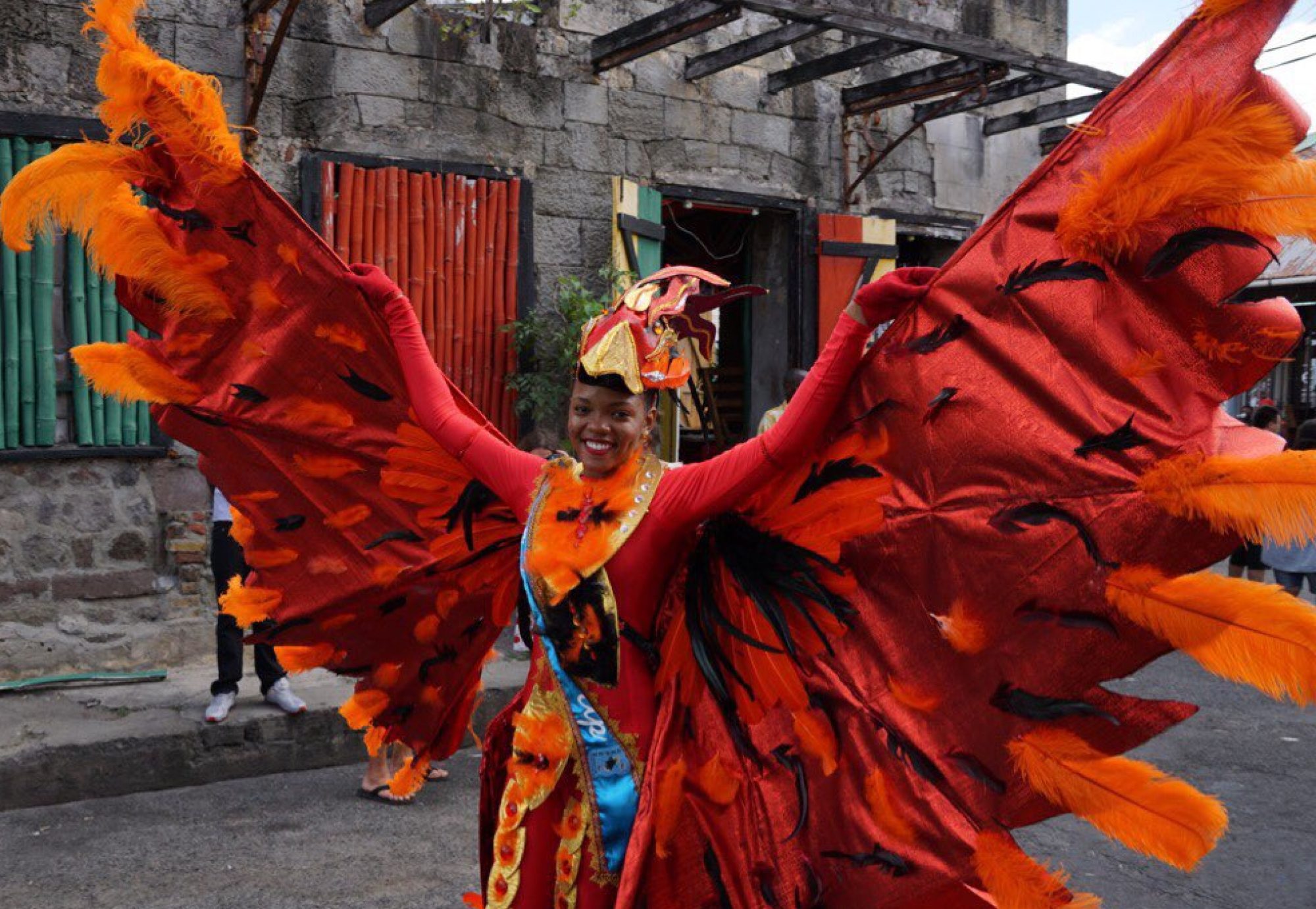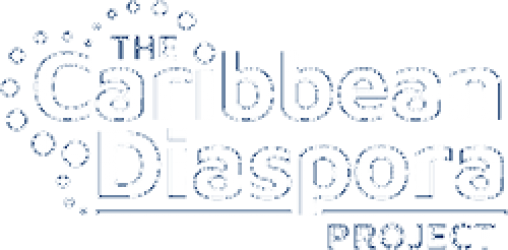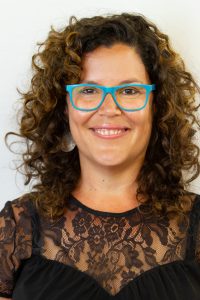
nadjah.rios@upr.edu
Nadjah Ríos Villarini – Principal Investigator
Nadjah Ríos Villarini received her doctorate and master’s in Linguistic Anthropology from the University of Texas at Austin. Her academic interest is oriented to issues of language and power, language attitudes and language planning in Puerto Rico and the Caribbean. Currently she works as an associate professor at the University of Puerto Rico, College of General Studies. Vieques manos al arriba! [Vieques hands up!] is her recent short film that explores the musical traditions of calypso and steel drums in the island municipality of Vieques. The documentary is based on ethnographic interviews with musicians, singers, and bandleaders of Calypso, who trace hypotheses about the arrival of this music to Vieques. She has documented carnivals in Puerto Rico and the US Virgin Islands. As Principal Investigator, Dr. Rios is in charge of the fiscal administration of the award and leadership of the project. She coordinates all the activities according to the work plan, and ensures their completion. She leads the drafting and finalization of the Design Document, and ensures it is delivered within the project time period. Dr. Ríos also contributes to the selection and curation of humanities content.
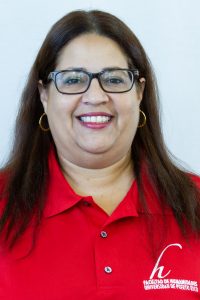
Mirerza González-Vélez – Co-Principal Investigator
Mirerza González-Vélez holds a Ph.D. in Mass Communication and Journalism from the University of Iowa and an M.A. in Communication and a B.A. in Journalism from the University of Puerto Rico. Her research focuses on the roles that culture and communication play in the articulation of imagined identities. Her most recent scholarship addresses migration as a fluid experience. Her research has appeared in a variety of academic publications, including The Journal of Communication Inquiry, Political Communication and Sargasso. With Dr. Nadjah Ríos, González co-directed The Diaspora Project, a web based platform that showcased related scholarship on bilingual education and communication competence in the nearby island of St. Croix, USVI. The project received the financial support of institutional and external grants and is described at: http://umbral.uprrp.edu/investigacion/proyecto-diaspora. As Co-PI of this project, Dr. Gonzalez works closely with Dr. Rios to coordinate the meetings and development activities, lead and participate in the selection of materials and components for the proposed site, and co-lead the drafting of the Design Document.
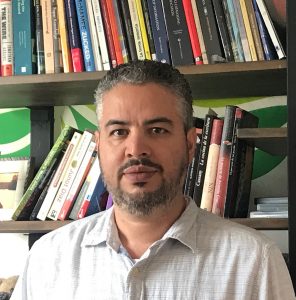
joel_blanco_r@encrym.edu.mx
Joel Blanco – Archivist and Digital Publishing Advisor
Joel Blanco obtained his Ph.D. from the University of Pittsburgh School of Information Sciences in 2012. He currently holds a position at Escuela Nacional de Conservación, Restauración y Museografía “Manuel del Castillo Negrete”, ENCRyM, del Instituto Nacional de Antropología e Historia del Gobierno Nacional de México. He has taught courses for the certificate in Archives and Records Management, the course Digital Libraries, introduction to archives course and the course Archives, History, and Collective Memory (co-taught with the History Department). He has also taught archives courses at Simmons College School of Library and Information Science and at the University of Pittsburgh School of Information Sciences. His research interests focus on the relationship between archives and transitional justice mechanisms in Latin America, the documentation of the Puerto Rican diaspora in the United States, and archival education in Latin America and the Caribbean. His dissertation was a case study of the work of the National Security Archive in Latin America, with a focus on the use of government records in truth commission investigations and human rights trials. Currently, his research focuses on the emergence of freedom of information (FOI) laws in Latin America with a special focus on the two main topics of factors that have influenced the creation of FOI laws in Latin America and how FOI impact the work of National Archives. Dr. Blanco provides the expert consultation to the Principal Investigator on developing a digital archive using best practices and open source tools. He attends and co-leads the first meeting with the invited digital humanities advisors to provide the structure for the selection and procedure for the development of archive materials of the site, and the effective use of university resources for archival materials and tools. Dr. Blanco, along with the project directors, also collaborates with the Umbral personnel to prepare and share selected archival materials on the DHTL Project Site.
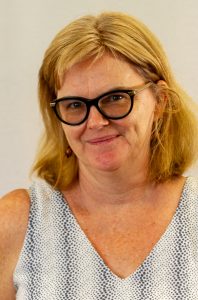
sally.everson@ub.edu.bs
Sally Everson – Grant Writing Consultant
Sally A. Everson is an Assistant Professor of English Studies at the University of The Bahamas. She has a Ph.D. in Anglophone Caribbean Literature from the University of Puerto Rico-Río Piedras. Dr. Everson is on the external Editorial Board of Sargasso, a journal of Caribbean literature, language and culture, a peer-reviewed journal published by the University of Puerto Rico. Her research interests include Caribbean literary history, pre-post emancipation literature and cultural production of the Caribbean and the Black Atlantic, and digital humanities. Dr. Everson works with Diaspora Project as a consultant in Caribbean Studies; in addition, she offers feedback on issues related to sustainability and external funding opportunities.
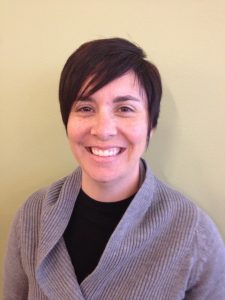
Jennifer Guiliano – Digital Humanities Advisor
Dr. Guiliano has served as a Post-Doctoral Research Assistant and Program Manager at the Institute for Computing in Humanities, Arts, and Social Sciences at the National Center for Supercomputing Applications (2008-2010) and as Associate Director of the Center for Digital Humanities (2010-2011) and Research Assistant Professor in the Department of History at the University of South Carolina. She most recently held a position as Assistant Director at the Maryland Institute for Technology in the Humanities at the University of Maryland where she also served as an adjunct instructor in the Department of History in the College of Liberal Arts and Sciences and the Digital Cultures program in the Honor’s College. Dr. Guiliano currently serves as President of the Association for Computing in the Humanities (ACH) Executive Council (2016-2018), as co-director with Trevor Muñoz of the Humanities Intensive Teaching + Learning Initiative (HILT: www.dhtraining.org/hilt), and as co-author with Simon Appleford of DevDH.org, a resource for digital humanities project development, as well as co-authoring Getting Started in DH forthcoming. Dr. Guiliano provides the expert consultation to the Principal Investigator on developing a digital humanities project using best practices and open source tools. She attends and leads the first meeting to provide the structure for the development of the site components, use of archival materials and tools, and effectively targeting a public audience.
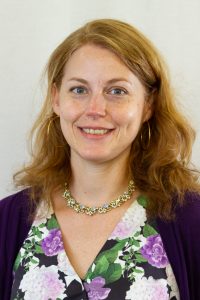
laurie@ufl.edu
Laurie Taylor – Digital Archivist Advisor
Laurie N. Taylor, Ph.D., is the Digital Scholarship Librarian at the George A. Smathers Libraries, University of Florida. Her work focuses on data/digital curation, digital scholarship, and developing socio-technical supports (people, policies, technologies, communities) for scholarly cyberinfrastructure. This includes work to develop, sustain, and integrate digital scholarship and data curation across communities, build communities of practice, and foster an environment of radical collaboration made possible in the digital age or the age of Big Data. She works heavily with the Digital Library of the Caribbean (dLOC), University of Florida Digital Collections (UFDC), UF Research Computing, and the Open Source SobekCM software and tools. She is the Digital Scholarship Director for the international collaborative Digital Library of the Caribbean (dLOC) and a founding Steering Committee Member for the Florida Digital Humanities Consortium (FLDH). Dr. Taylor leads the project’s Design Team on using the selected platforms for collaborating digitally for project development (using the Open Source Commons in a Box) as well as platforms for designing the interactive archival site (Open Source Omeka, Scalar, or SobekCM, developed by the University of Florida, and used for dLOC). She provides expert consultation to the Project Director regarding the technical requirements for acquiring and using these tools for site design prior to the start of the meetings. She also attends and co-leads the first Meeting with Dr. Guiliano to orient the Project team on developing a Digital archives and collaborating digitally for development of the site. Dr. Taylor attends the Second and Third Meetings to provide guidance and expert consultation on using best practices for the design of the proposed site, digital archiving and curation methods and use of the selected platforms to inform the Design Document.
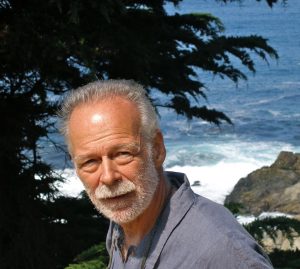
fiet.low73@gmail.com
Lowell Fiet – Subject Specialist / Micro-Project Creator
Lowell Fiet, PhD, is a retired professor from the English and Drama Departments of the College of Humanities at the University of Puerto Rico–Río Piedras Campus. He is the founding editor of Sargasso: a Journal of Literature, Culture and Languages of the Caribbean. His most recent books are An Archipelago of Caribbean Masks (2019), Caballeros, Vejigantes, Locas y Viejos: Santiago Apóstol y los performeros afro-puertorriqueños (2007) and El teatro puertorriqueño reimaginado: Notas críticas sobre la creación dramática y el performance (2004). Former director of the Institute of Caribbean Studies, Fiet’s scholarship addresses topics related to Carnival, Theater and Performance in Puerto Rico, the Hispanic, Eastern and French Caribbean, and his work is well known throughout the whole Caribbean region. He has been a recipient of prestigious fellowships and grants among them: Rockefeller Foundation fellowship, and has twice directed a National Endowment for the Humanities Summer Institute. Dr. Fiet leads the project’s development of the scholarly content on Caribbean Carnival, and participates in the selection of archival materials on Caribbean Carnival, particularly those related to performance, traditions, and aesthetics of carnival.
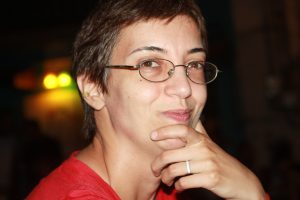
nora.ponte@upr.edu
Nora E. Ponte Cobo – Subject Specialist / Micro-Project Creator
Nora E. Ponte Cobo, PhD is an Associated Professor in the Department of Music of the College of Humanities at the University of Puerto Rico- Rio Piedras. In 2008 she completed a Ph.D. in Music Composition at State University of New York at Buffalo. Ponte has a solid international background, with an M.A. in Music Composition from the Facultad de Artes y Ciencias Musicales de la Universidad Católica Argentina, Buenos Aires, 1994; studies in composition under the guidance of Giacomo Manzoni at the Scuola di Musica di Fiesole, Florence, Italy, 1998-2000; electronic music with Riccardo Bianchini at the Conservatorio Santa Cecilia, Rome, Italy, 1999-2000; and composition with Mariano Etkin- 1992-1993, and composition with electro-acoustic media with Pablo Cetta, 1990-1991. Ponte is a well-known electronic music composer and explores the role played by technological and electronic sounds in the development of a distinctive Caribbean carnival sound. Dr. Ponte leads the selection of audio archival materials related to Caribbean carnival, and the formulation of the audio and multimedia presentation components for the Design Document for the proposed site.
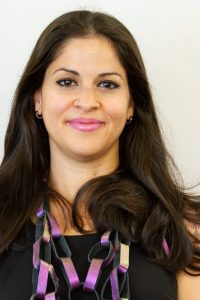
mila.aponte@upr.edu
Mila Aponte-González – Digital Humanities / Information Science Specialist
Mila Aponte-González has been performing as an information professional at the crossroads of Digital Humanities’ theory and praxis since the turn of the century. An alumna from the University of Puerto Rico-Río Piedras Campus (B.A. Comparative Literature and Drama, M.I.S. Information Science & Technology) and New York University (M.A. and ABD in Performance Studies, Tisch School of the Arts), she has focused her endeavors on researching and managing digital projects that document and disseminate the cultural production of border-crossing communities of practice. She is currently (and concurrently) a Senior Information Manager in the private sector and an Adjunct Professor of Digital Humanities at UPR-Río Piedras (Master’s Programs in Cultural Management Administration and Information Science & Technology). Mila is also an independent consultant for NPO research projects on digital archiving and knowledge management, and on the integration of information technologies to teaching-learning environments. She contributes to the Diaspora Project by assessing open source platforms, selecting tools and applications for designing interactive components of the website/archives, and testing for desired user interactivity to ensure meaningful user experiences.
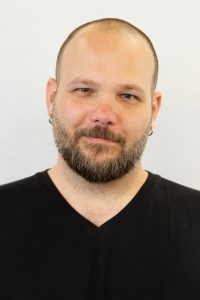
pablo@defendini.com
Pablo Defendini – Web Designer
Pablo Defendini is a designer and developer for hire, with a focus on editorial design for digital media. He is also the Publisher and Art Director of Fireside Magazine. He helped launch Tor.com, before moving on to work for companies that sit in the overlap between publishing and technology, like Open Road Media and O’Reilly. Pablo was born and raised in San Juan, Puerto Rico, lives in New York City, and works with people all over the world.
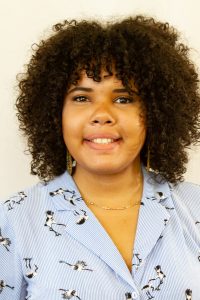
faviola.martinez@upr.edu
Faviola Martínez Sierra – Undergraduate Research Assistant
Faviola Martínez Sierra is an undergraduate student currently completing a BA on social work at the University of Puerto Rico-Río Piedras Campus. Faviola has been working for the Caribbean Diaspora for two years as a research assistant. Her collaboration with the project consists on categorizing, organizing and digitizing metadata from diverse collections donated to the project. On September 15th, 2018 she participated (along with fellow research assistant Gabriela Rivera Marín) in Encuentro Subgraduado de Investigación, y Creación, where they offered a workshop on research skills in digital humanities to students and scholars.
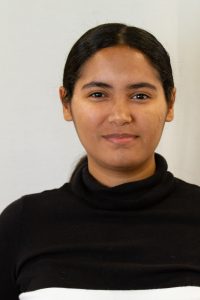
gabriela.rivera35@upr.edu
Gabriela Rivera Marín – Undergraduate Research Assistant
Gabriela Rivera Marín is a senior undergraduate student from the University of Puerto Rico (UPRRP), majoring in Comparative Literature with a minor in Linguistics and Communication. She currently works as a research assistant for the Caribbean Diaspora Project, an NEH funded digital humanities initiative adhered to the University of Puerto Rico’s College of General Studies. At the present time, she is participating in a summer research internship at the University of Florida, where she is employed as a research assistant for the Chair of the Department of Spanish and Portuguese. As an undergraduate scholar, she has done research in several fields of study, amongst them: the digital humanities, Ovidian literature, second language acquisition and creative writing. She has presented her work in conferences like the National Conference on Undergraduate Research (NCUR 2018 & 2019) and the 5to Encuentro Subgraduado de Investigación y Creación (2018). As a writer, she has published several of her short stories in [IN]Genios, which is a peer-reviewed undergraduate research and creation indexed journal.

valeria.fernandez@upr.edu
Valeria Fernández González – Graduate Research Assistant
Valeria S. Fernández González is a professor at the Women and Gender Studies Program in the University of Puerto Rico, Río Piedras Campus. She has an M.I.S. in Information Science, a B.A. in Psychology, and a Certification in Women and Gender Studies, from the University of Puerto Rico-Río Piedras. Her research explores the documentation and access of body practices in Puerto Rico and decolonial art in Latin America and the Caribbean. She has worked with The Diaspora Project as a graduate research assistant and collaborator, in the creation of metadata for different collections (El Tacón de la Chancleta, Juan J. Romero Sanes, Vieques SÍ! Marina NO!). She has presented her research in ENCRyM (Escuela Nacional de Conservación Restauración y Museografía, Mexico City) and diverse academic forums in Puerto Rico (Encuentro Latinoamericano de Bibliotecarios Archivistas y Museólogos, Coloquio del Otro ‘Lao). She is also a movement and performance artist, both as a member of Colectivo Entrecejo and within her individual artistic platform, Angustias del Trópico.
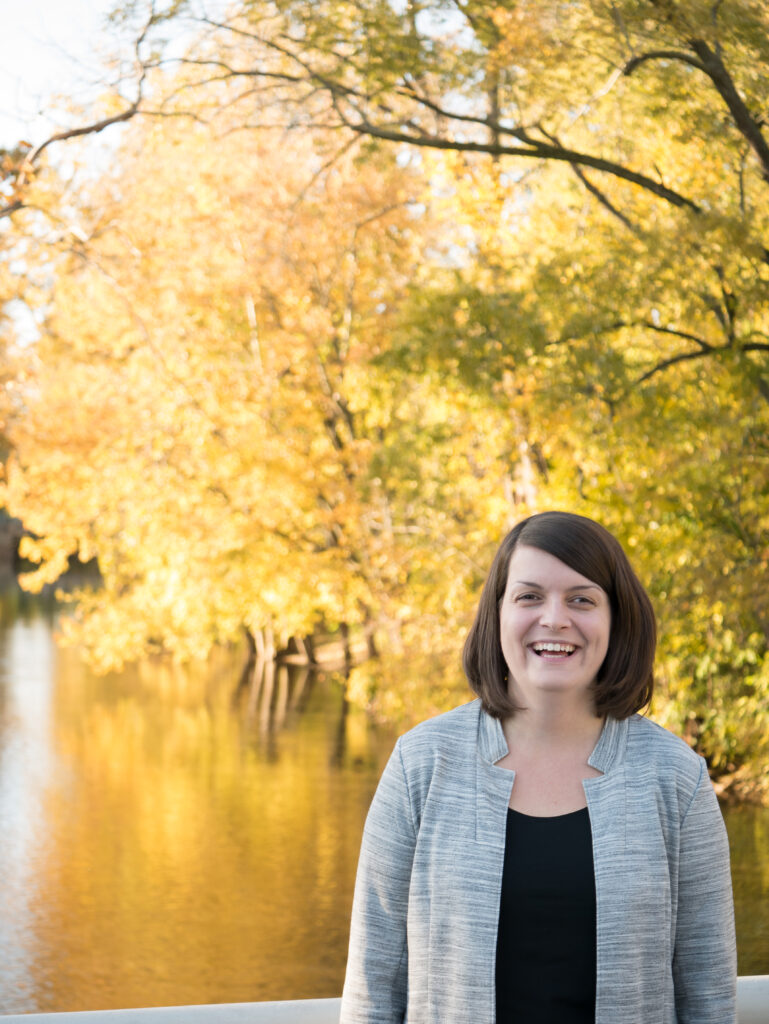
cboyles@msu.edu
Christina Boyles – Project Consultant
Christina Boyles is an Assistant Professor of Culturally Engaged Digital Humanities at Michigan State University. Her research explores the relationship between disaster, social justice, and the environment. She is the director of the María Memory Bank, a project that works with community organizations in Puerto Rico and the Caribbean to collect and preserve stories about Hurricane María. Her published work appears in Digital Humanities Quarterly, Bodies of Information: Feminist Debates in the Digital Humanities, The Journal of Interactive Technology & Pedagogy, American Quarterly, Studies in American Indian Literatures, The Southern Literary Journal, The South Central Review, and Plath Profiles.
